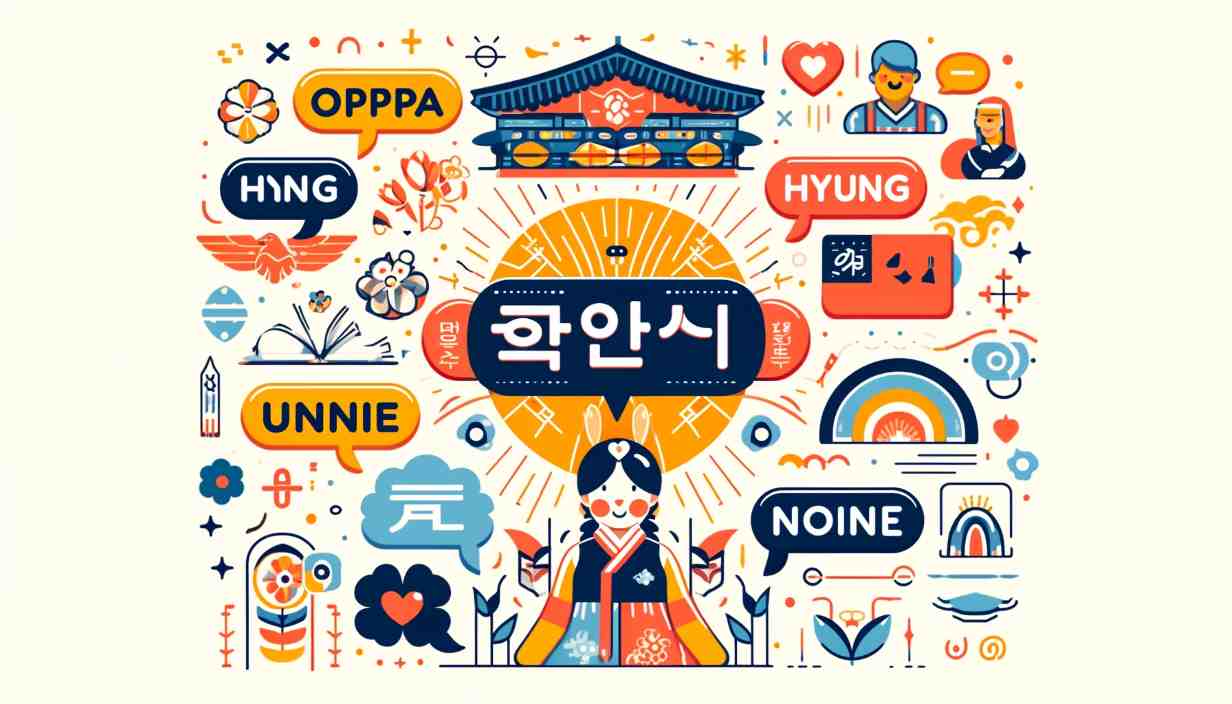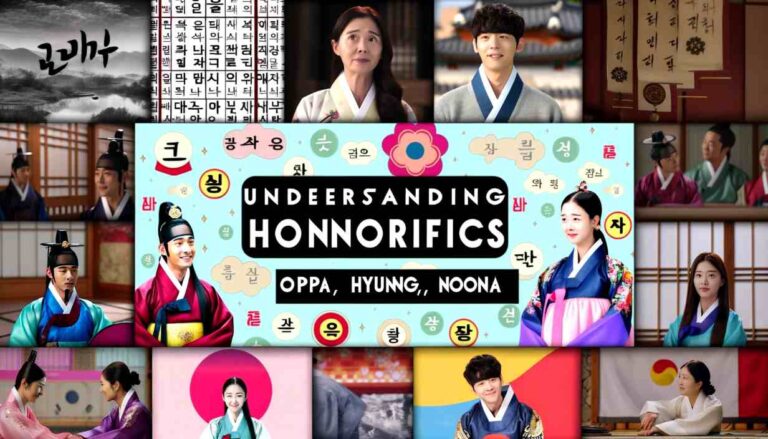Let’s dive into the nuances of Korean honorifics, specialising in “Oppa i” and its opposite numbers: Hyung, Unnie, and Noona. The Korean language is enriched with phrases that mirror social hierarchies, age, and gender, gambling a widespread position in interpersonal relationships. Understanding those terms no longer best aids in language comprehension; however, it also presents a perception of Korean culture and social interactions.
Understanding “Oppa i” and Its Cultural Significance
In the Korean way of life, “Oppa i” is a term women use to address older brothers or men slightly older than themselves. It isn’t merely a reference to the age hole but also an affectionate and respectful connotation. This term is frequently used by more youthful women to older male pals, boyfriends, or brothers, indicating a near, trusting dating. The usage of “Oppa i” is accepted in various contexts, including circles of relatives gatherings, social settings, and even infamous media, together with K-dramas and K-pop.
The Role of “Oppa i” in Contemporary Korean Society
Today, the time period “Oppa i” has transcended its traditional boundaries. With the worldwide rise of the Korean famous tradition, “Oppa i” has become a familiar time period across the world, often related to the fan way of life and the K-pop enterprise. It’s not uncommon to pay attention to fans who check with their favourite male idols as “Oppa,” regardless of their personal age or nationality. This demonstrates the time period’s flexibility and its potential to conform to modern cultural phenomena.
“Oppa i” Versus “Hyung”
While “Oppa i” is used by women, “Hyung” is the male counterpart. Men use “Hyung” to address older brothers or male buddies who are older. It conveys appreciation and camaraderie amongst adult males and is an essential part of male friendships in Korea. Understanding the distinction between “Oppa i” and “Hyung” is crucial in grasping the nuances of Korean interpersonal relationships.
The Female Counterparts: “Unnie” and “Noona”
“Unnie” and “Noona” serve as the female equivalents of “Oppa i” and “Hyung.” “Unnie” is used by younger women to address older sisters or female friends. It signifies a bond of trust and sisterhood. Similarly, “Noona” is used by younger men to address older sisters or female friends. These terms, like “Oppa i” and “Hyung,” play a pivotal role in defining social interactions based on age and gender.

“Oppa i” in the Language Learning Process
For learners of the Korean language, understanding when and how to use “Oppa i” is essential. Misuse can lead to confusion or unintended disrespect. Language guides frequently emphasize the importance of these honorifics, as they may be imperative to powerful conversation in Korean society. It’s not just about the vocabulary; it’s also about understanding the cultural context where these phrases are used.
The Global Influence of “Oppa i” Through Media
Korean dramas and music have been instrumental in popularizing a certain term globally. Characters in dramas often use this term in various contexts, offering viewers insight into its usage. Similarly, K-pop songs and fan interactions frequently showcase the term, making it a staple in the vocabulary of global fans.
The Evolution of “Oppa i” in Modern Korean Culture
Over the years, the usage of “Oppa i” has evolved, reflecting changes in Korean society. While it still holds its traditional value, its application in modern settings sometimes diverges from historical usage. This evolution showcases the dynamic nature of language and how cultural shifts can influence linguistic expressions.
Navigating Social Etiquette with “Oppa i”
Understanding when and how to use “Oppa i” is essential in navigating Korean social etiquette. It’s a sign of recognition and familiarity, but it’s vital to recognize the ideal contexts for its use. Foreigners residing in or travelling to Korea are regularly encouraged to learn those nuances to interact respectfully and effectively with locals.
The Intersection of “Oppa i” with Gender and Respect
Principles of gender and recognition in the Korean way of life deeply intertwine with ‘Oppa i’. It displays the societal norms and expectations concerning age and gender roles. This intersection is a fascinating aspect of Korean linguistics and social customs, presenting a window into the values and traditions of Korean society.
“Oppa i” in the Business and Professional Context
The use of this term in a professional setting can vary. Generally, business environments prefer more formal language, but in more casual or intimate workplace relationships, people may use this expression. This is a passive voice sentence. Convert active voice these sentence Understanding this balance is key to maintaining professionalism while acknowledging the informal social structures that exist within Korean corporate culture.
“Oppa i” and Its Impact on International Relationships
As Korean culture continues to influence the world, this term has become a bridge in international relationships. Non-Koreans learning the language often encounter this particular expression as one of the first cultural nuances they learn. Its usage by international fans and learners reflects a growing global appreciation for Korean culture and social norms.
Conclusion: The Cultural Tapestry of “Oppa i”
“Oppa i” is more than just a term; it’s a cultural emblem that represents respect, affection, and the complexities of social hierarchies in Korean culture. Its opposite numbers, “Hyung,” “Unnie,” and “Noona,” whole this linguistic tapestry, every gambling a completely unique position in articulating relationships and social standings. As Korean way of life keeps to captivate a worldwide target market, understanding those terms turns into an increasing number of huge, no longer just for language rookies but for all and sundry inquisitive about the tricky dynamics of Korean society.


